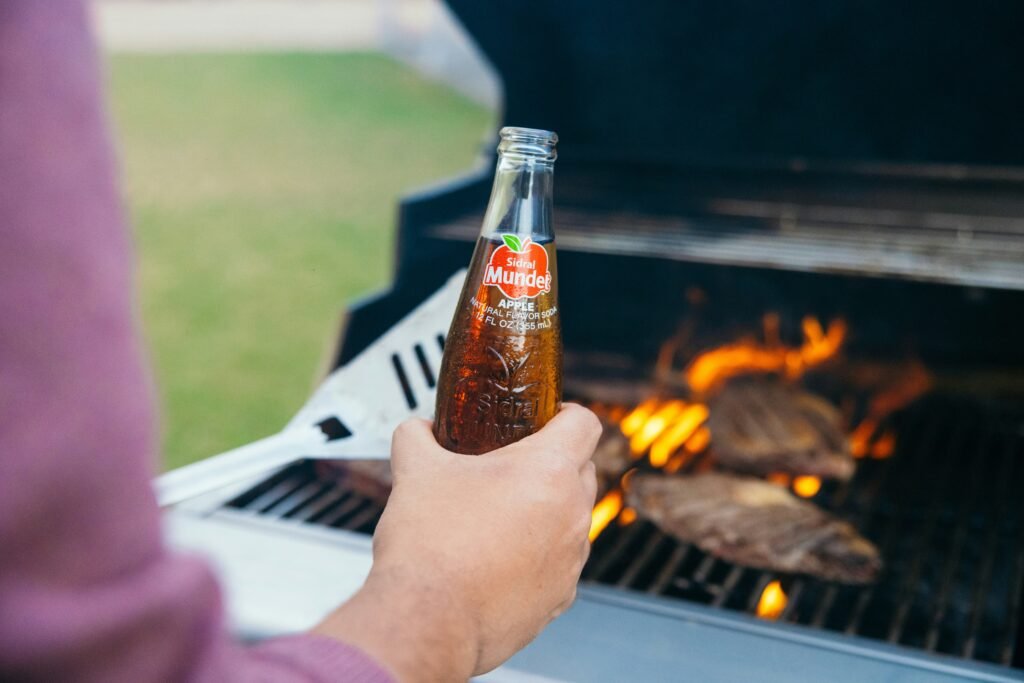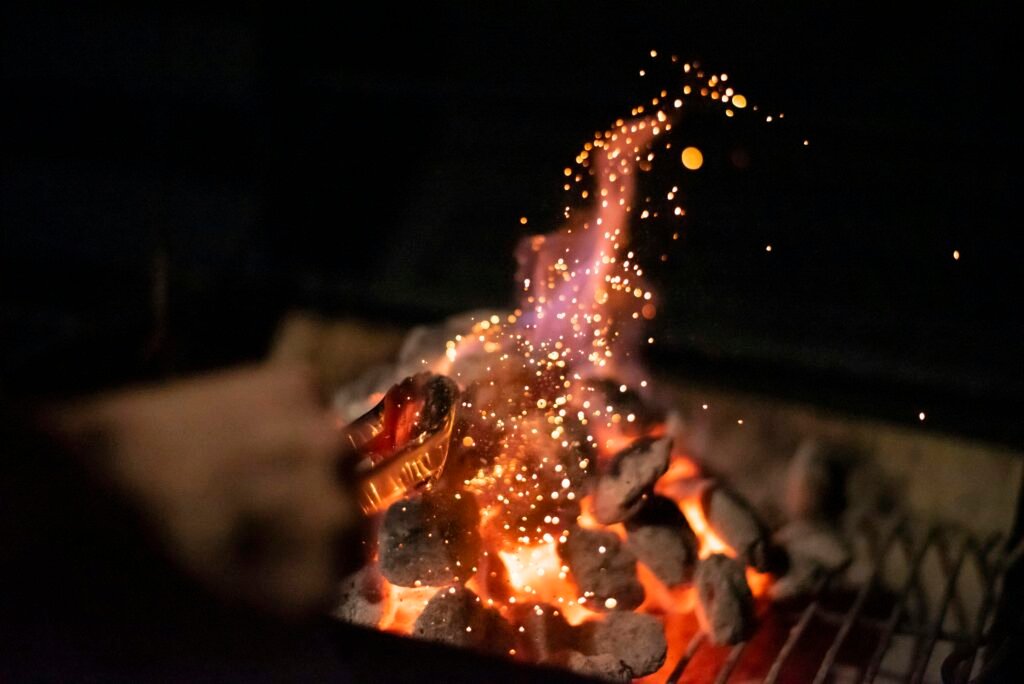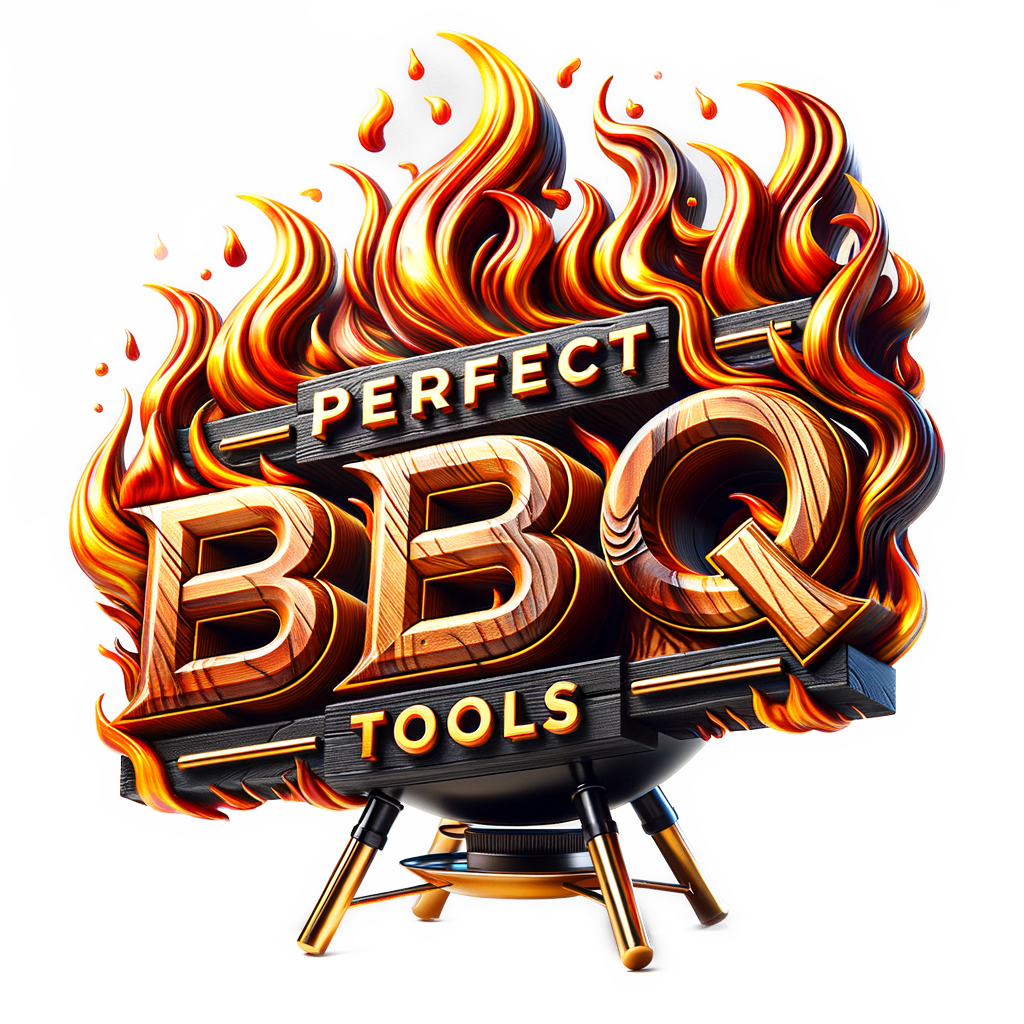Imagine this scenario: you’re decked out in an apron, ready to grill up a mouthwatering feast for your friends and family. Suddenly, you catch a glimpse of your trusty gas grill, but an intriguing question arises: can you use charcoal in a gas grill? The answer may surprise you. In this article, we’ll explore the possibility of infusing the smoky flavors of charcoal into your gas grill experience, giving you the best of both worlds. So, grab a seat and let’s embark on this flavorful journey together.

Understanding the Basics of a Gas Grill
How a gas grill functions
A gas grill is a convenient and popular choice for outdoor cooking. It operates by igniting gas fuel, typically propane or natural gas, in order to create a controlled flame that heats the cooking grates. This heat is then transferred to the food, allowing it to cook evenly.
Key components of a gas grill
Gas grills consist of several key components that work together to deliver the cooking performance we enjoy. These components include the gas burner, heat diffuser or flavorizer bars, cooking grates, and the ignition system. The gas burner is responsible for producing the flame, while the heat diffuser ensures even heat distribution and prevents flare-ups. The cooking grates provide a surface for placing the food, and the ignition system allows for quick and easy lighting of the grill.
Types of gas fuels used
Gas grills can be fueled by either propane or natural gas. Propane is stored in a portable tank, making it suitable for grilling on the go or in locations without a natural gas hookup. Natural gas, on the other hand, is connected directly to the grill from a gas line in your home. Both propane and natural gas are efficient and convenient fuel options for gas grills.
Differentiating Between Gas and Charcoal Grills
Design differences between gas and charcoal grills
Gas and charcoal grills have distinct design differences. Gas grills typically consist of multiple burners, knobs for heat control, and often come with additional features like side burners or rotisserie kits. Charcoal grills, on the other hand, are simpler in design, with a charcoal tray and a cooking grate. Gas grills offer more versatility and convenience, while charcoal grills provide a traditional grilling experience.
Comparative analysis of gas and charcoal grill functionality
When it comes to functionality, gas grills have the advantage of quick and easy heat-up times. They also offer precise heat control, allowing you to adjust the temperature to your desired level. Charcoal grills, however, require more time to heat up and often require the use of lighter fluid for ignition. They also offer less control over temperature adjustments. Gas grills are generally considered more user-friendly in terms of functionality.
Flavor profiles created using gas vs charcoal grills
One significant difference between gas and charcoal grills lies in the flavor profile of the food they cook. Charcoal grills impart a distinct smokey flavor to the food, which many grilling enthusiasts appreciate. This flavor is created by the combustion of charcoal and the release of aromatic compounds. Gas grills, while still capable of producing delicious food, do not provide the same level of smokiness. Some gas grills, however, come with accessories like smoker boxes or sear plates that can enhance the flavor and mimic the taste of charcoal grilling.
The Concept of Using Charcoal in a Gas Grill
Is using charcoal in a gas grill possible or not
Using charcoal in a gas grill is generally not recommended by manufacturers. Gas grills are designed specifically for use with gas fuels, and introducing charcoal can lead to various issues and safety risks. The construction and components of gas grills are not intended to accommodate the use of charcoal, and doing so may cause damage or compromise performance.
Concerns and consequences of using charcoal in a gas grill
Using charcoal in a gas grill can pose several concerns and consequences. One of the major concerns is the potential fire hazard. Charcoal needs to be ignited and can easily become a source of uncontrolled flames if not handled properly. Additionally, using charcoal in a gas grill may lead to damage to the integral grill components, such as the burners, heat diffuser, and ignition system. The presence of charcoal can also increase the risk of explosion due to trapped gases.
Safety Risks Associated with Charcoal in a Gas Grill
Potential fire hazard
When using charcoal in a gas grill, the risk of a fire hazard increases significantly. Charcoal requires its own ignition source, which means you’ll need to introduce an open flame to light it. This can be hazardous if not done correctly, as the flame may get out of control and potentially cause a fire. Gas grills are specifically designed for controlled ignition and may not have the necessary safety features to handle the use of charcoal.
Damage to integral grill components
The construction and design of gas grills are optimized for the use of gas fuels, and they are not equipped to handle the intense heat generated by charcoal. The high temperatures produced by charcoal can cause damage to crucial components of the gas grill, such as the burners, heat diffuser, and ignition system. This can result in decreased performance, malfunction, or even permanent damage to the grill.
Risk of explosion due to trapped gases
Another safety risk associated with using charcoal in a gas grill is the potential for an explosion. Charcoal produces gases, including carbon monoxide, which can become trapped within the grill. If these gases are not properly vented, they can build up and create a dangerous situation. Gas grills are designed with appropriate ventilation systems for gas fuel, but they may not be adequate for the release of gases produced by charcoal.

Effects on Grill Performance
Impact on heat control and distribution
The use of charcoal in a gas grill can significantly affect heat control and distribution. Gas grills are engineered to provide precise heat control through knobs that regulate the flow of gas, enabling you to adjust the temperature according to your cooking needs. Introducing charcoal can disrupt this mechanism, making it challenging to maintain consistent temperatures throughout the grilling process. The result may be unevenly cooked food and a less enjoyable cooking experience.
Issue with ventilation
As mentioned earlier, gas grills are designed with specific ventilation systems to accommodate gas fuel. When using charcoal, the ventilation needs may differ. Charcoal requires proper airflow to sustain a controlled burn and prevent excessive smoke buildup. The ventilation system of a gas grill may not be optimized for these requirements, leading to inadequate airflow and potential issues with smoke management.
Long term negative effects on grill performance
Using charcoal in a gas grill can have long-term negative effects on the overall performance of the grill. The high heat generated by charcoal can cause damage to key components, such as the burners and heat diffuser, leading to decreased efficiency and functionality. The introduction of charcoal can also result in the accumulation of residue and ash, which may be difficult to clean and can further impact grill performance over time.
Impact on Flavor of Food
Comparison of smokey flavor
One of the main reasons individuals gravitate towards charcoal grilling is the rich, smokey flavor it imparts to food. Gas grills, while capable of producing delicious results, typically do not offer the same level of smoke infusion. Charcoal creates a unique and distinct flavor through the combustion of the charcoal itself and the release of aromatic compounds. Attempting to replicate this flavor using charcoal in a gas grill may not yield the desired results, as the design and functionality of gas grills are not optimized for achieving the same level of smokiness.
Difference in food texture
Charcoal grilling can also impact the texture of the food being cooked. The intense heat produced by charcoal allows for quick searing and the development of a crispy exterior while maintaining a juicy interior. Gas grills, on the other hand, may not generate the same level of direct heat, resulting in a slightly different texture. While this distinction may not be significant for most individuals, those who enjoy the traditional texture associated with charcoal grilling may find it challenging to replicate using a gas grill.
Impact on overall taste of food cooked
The overall taste of food cooked on a gas grill, compared to a charcoal grill, can differ due to the factors mentioned above. While gas grills are capable of creating mouthwatering dishes, the distinct flavor and aroma associated with charcoal grilling may be missing. The choice between gas and charcoal grilling ultimately depends on personal preference and the specific flavor profile desired.

Environmental Impact
Charcoal grilling vs gas grilling emission rates
When considering the environmental impact of grilling, it’s essential to compare the emission rates of charcoal and gas grills. Charcoal grilling is known to produce higher levels of emissions, including carbon monoxide and volatile organic compounds (VOCs). Gas grilling, especially when using natural gas, has lower emissions and generally contributes less to air pollution. Choosing a gas grill over a charcoal grill can be a more environmentally-friendly option.
Impact of charcoal on air pollution
The combustion of charcoal releases pollutants into the air, contributing to air pollution. The emissions produced by charcoal grilling, such as carbon monoxide and VOCs, can have negative effects on air quality and human health. It is important to note that proper ventilation and responsible charcoal usage can help mitigate these environmental impacts.
Health concerns associated with charcoal usage
The emission of carbon monoxide and VOCs from charcoal grilling can pose health risks, especially in poorly ventilated areas. Inhaling these pollutants can lead to symptoms like headaches, nausea, and dizziness. It is crucial to prioritize safety and ensure proper ventilation when using charcoal to minimize these health concerns. Gas grills, with their lower emissions, may be a safer option in terms of air quality and health.
Warranty and Product Support Consequences
Voiding warranty by using charcoal
Using charcoal in a gas grill can have significant consequences when it comes to the warranty. Most gas grill manufacturers explicitly state that using any fuel other than the recommended gas fuel can void the warranty. Introducing charcoal into the grill would be considered a breach of the warranty conditions, leaving you without coverage for any potential issues or defects.
Non-coverage consequences on product support and servicing
If the warranty is voided due to the use of charcoal in a gas grill, it can have additional consequences beyond not being eligible for repair or replacement. Manufacturers may refuse to provide product support or servicing for a grill that has been used in a way that goes against their guidelines. This means you may be left without manufacturer assistance or professional servicing, making it more challenging to address any future issues that may arise.
Alternative Methods to Achieve Charcoal Flavor
Using wood chips and pellets
To achieve a smoky flavor similar to charcoal grilling, you can utilize wood chips or pellets in a gas grill. Soaking the wood chips or using a smoker box filled with wood pellets can add a subtle smokiness to your food. These wood-based products are designed specifically for gas grills and allow you to infuse your dishes with a distinct flavor without compromising the integrity of your grill.
Utilizing flavored smoking products
Numerous flavored smoking products are available on the market, ranging from wood chips to liquid smoke. These products offer an array of flavors, such as hickory, mesquite, or applewood, that can enhance the taste of your grilled food. They can be used in conjunction with a gas grill to add an extra layer of smokiness and complexity to your dishes.
Experimentation with different cooking techniques
If you’re looking to expand your culinary skills and explore diverse flavors, experiment with different cooking techniques on your gas grill. Techniques like searing, indirect grilling, or even using a cast iron skillet can help achieve unique textures and flavors. While not identical to charcoal grilling, these techniques allow you to showcase your creativity and create delicious meals without the need for charcoal.
Conclusion: The Verdict on Using Charcoal in a Gas Grill
Final decision based on precedence and safety
After considering the various factors and safety risks associated with using charcoal in a gas grill, it is generally not recommended or supported by manufacturers. Gas grills are designed for specific fuel types, and introducing charcoal can lead to issues, decreased performance, and safety hazards. It is important to prioritize safety and follow the guidelines provided by the manufacturer to maintain the longevity and functionality of your gas grill.
Comparative analysis of pros and cons
Gas grills offer convenience, quick heat-up times, precise temperature control, and a wide range of features. They are generally considered more user-friendly and provide consistent results. On the other hand, charcoal grills offer a traditional grilling experience, impart a distinct smoky flavor, and can achieve unique textures. However, they require more time and effort, and their use comes with certain safety risks and environmental concerns.
Suggested techniques in achieving best grilled flavors while using gas grills
To achieve the best grilling flavors while using a gas grill, consider utilizing alternative methods such as wood chips, pellets, or flavored smoking products. Experiment with different cooking techniques to cater to your desired taste preferences. By exploring these options, you can enhance the flavor profiles of your dishes and enjoy the convenience and safety benefits that come with using a gas grill.

